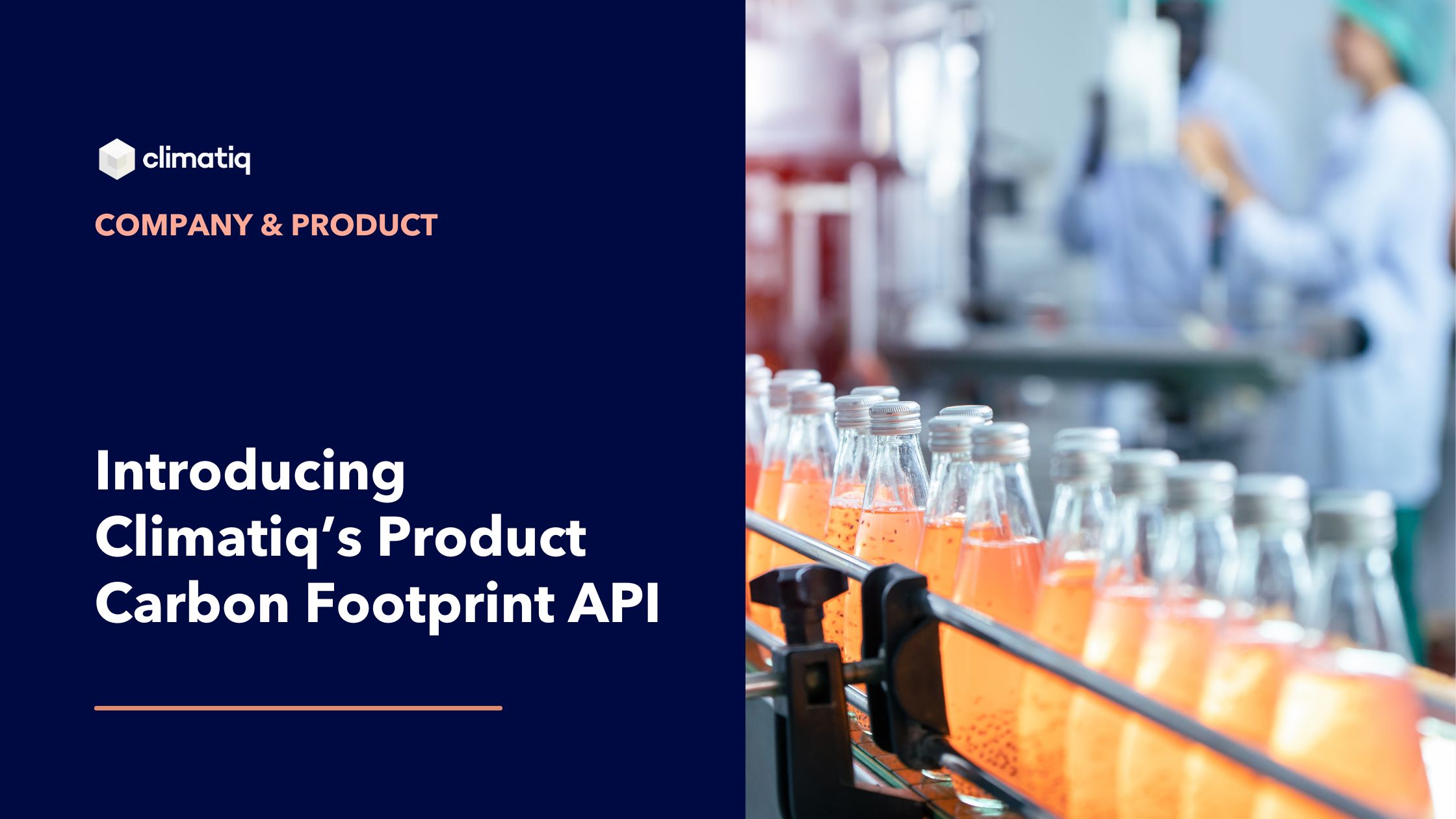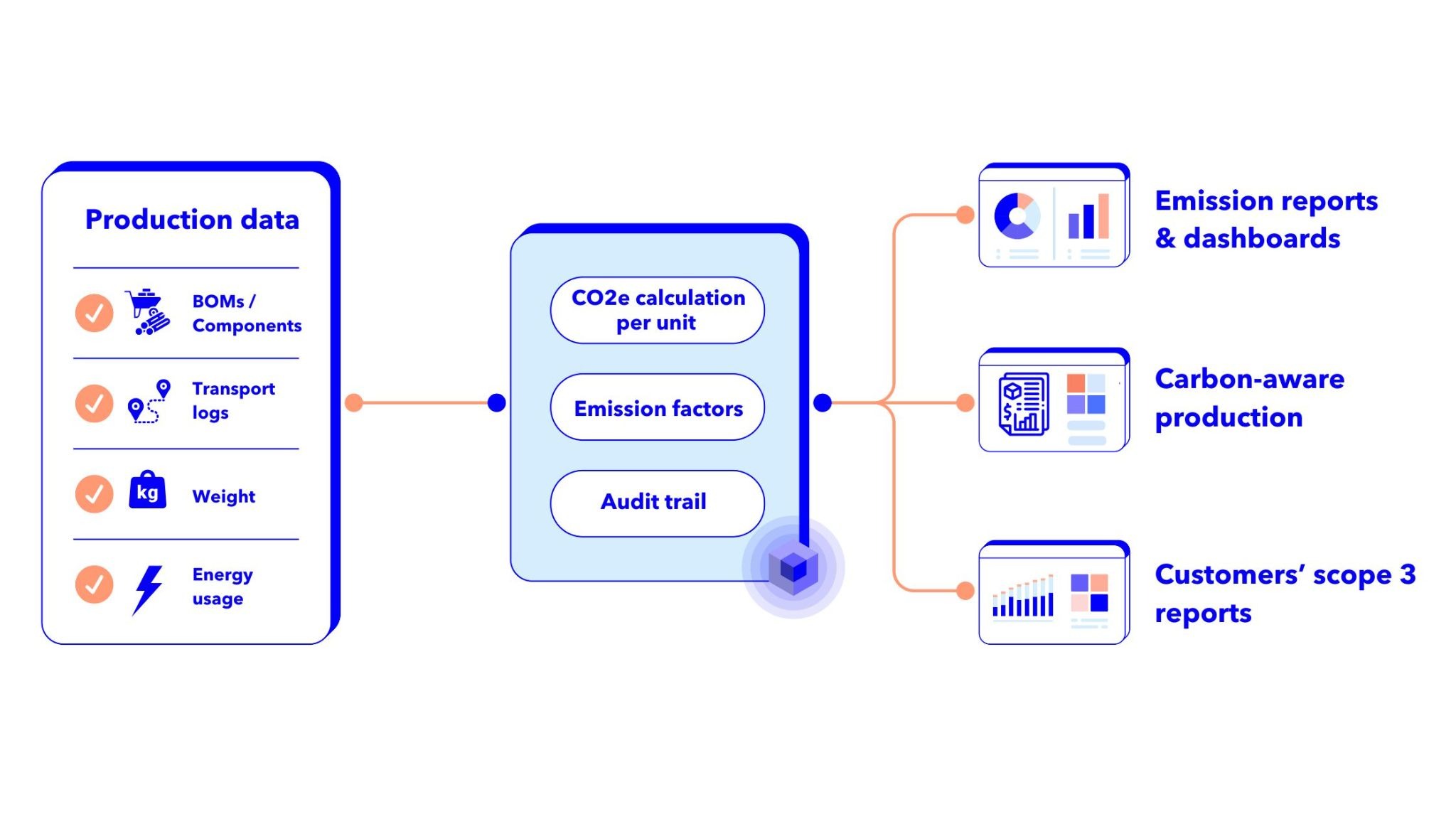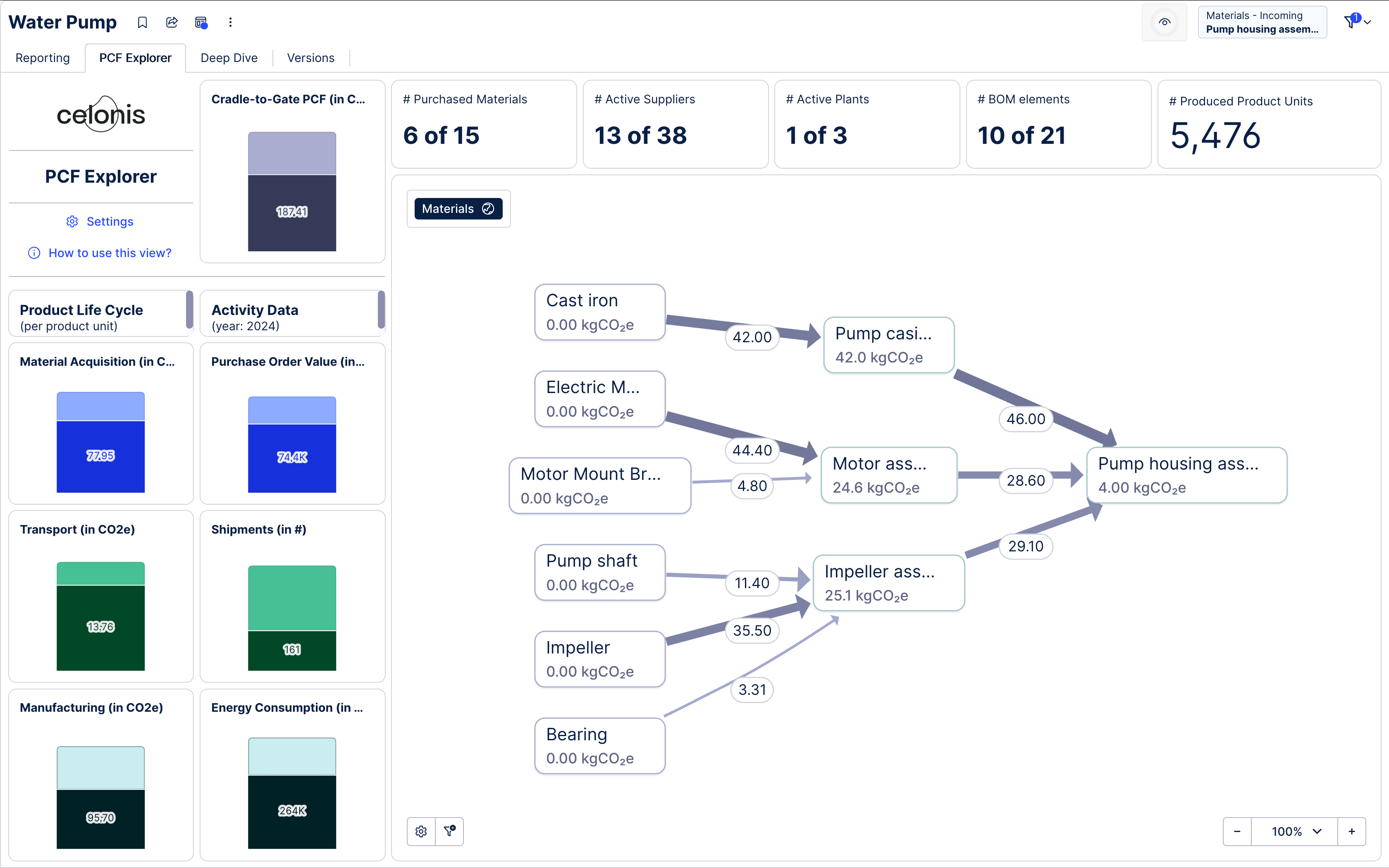


Everyone talks about carbon transparency. But while companies may have visibility into their scope 1 & 2, they’re often still flying blind on the emissions that are baked into every product they make or sell. Welcome to the product carbon footprint problem.
A product carbon footprint (PCF) breaks down the emissions of a single product across its entire value chain. Unlike company-wide carbon accounting, PCFs provide product-level precision, showing you exactly which materials and processes are carbon hotspots throughout the supply chain.
And now, PCFs are becoming a necessity. As CSRD mandates scope 3 reporting for large enterprises, there’s increasing supply chain pressure and demand for product-level data. Added to this, emerging requirements like the Digital Product Passport (DPP) are making it clear that manufacturers need scalable, automated, and audit-ready PCFs across their product catalogs fast.
The problem is that calculating reliable PCFs has traditionally been slow and difficult. The process requires granular data that often doesn’t exist. Plus, the nature of complex, multi-country supply chains means a single product might touch 15 different energy grids and manufacturing processes. To do this for just one product takes a long time, and becomes completely impossible for manufacturers to scale.
Our solution: combine everything we’ve learned while building emissions data and carbon calculation capabilities for some of the world’s biggest companies into Climatiq’s PCF API. It’s a new kind of PCF tool that delivers the scale, speed, and cost that modern organizations require.
The Climatiq PCF API lets sustainability platforms build what manufacturers need in a few sprints, not a few quarters.
Key features of the Climatiq PCF API include:
Our PCF API offers a cost-effective solution for delivering PCFs fast. This is particularly important for industries like electronics, textiles, and automotive that are facing the highest regulatory and commercial pressure.

The API is already proven up to enterprise scale, supporting Celonis’ solution to meet the demands of global manufacturers for PCFs. By using Celonis’ PCF app, customers get precise estimates that support regulatory, business, and sustainability goals, with the ability to scale calculations across the supply chain for hotspot analysis and reporting purposes.

As supply chain transparency becomes non-negotiable, manufacturers need accurate PCF calculations now—meaning the sustainability platforms they rely on need to move quickly.
Unlike alternatives that require massive upfront investment in data infrastructure, compliance expertise, and specialized talent, Climatiq's PCF API gives sustainability platforms the calculation engine and compliant methodology they need in a well documented API.
That means manufacturers have reliable PCFs faster, helping them meet customer demands and regulatory requirements while driving carbon reduction sooner.
If you’re a sustainability platform looking to use our API to deliver PCF support faster, you can check out our documentation here or reach out to our sales team. If you’re a manufacturer or consultant looking to enable product carbon footprint for your organization, get in touch here to join our innovation program.